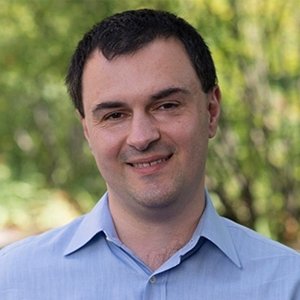
Edoardo Airoldi
Biography
Edoardo Airoldi received a PhD from Carnegie Mellon University in 2007, working at the intersection of statistical machine learning and computational social science with Stephen Fienberg and Kathleen Carley. His PhD thesis explored modeling approaches and inference strategies for analyzing social and biological networks. Until December 2008, he was a postdoctoral fellow in the Lewis-Sigler Institute for Integrative Genomics and the Department of Computer Science at Princeton University working with Olga Troyanskaya and David Botstein. They developed mechanistic models of regulation, leveraging of high-thoughput technology, to gain insights into aspects of cellular dynamics that are not directly measurable at the desired resolution, such as growth rate. He joined the Statistics Department at Harvard University in 2009.
- Airoldi’s research explores modeling, inferential, and other methodological issues that often arise in applied problems where network data (i.e., measurements on pairs of units, or tuples more generally) need to be considered, and standard statistical theory and methods are no longer adequate to support the goals of the analysis. More broadly, his research interests encompass statistical methodology and theory with application to molecular biology and computational social science, including:
- Design and analysis of experiments in the presence of interference
- Design and evaluation of network sampling mechanisms, and inference from non-ignorable sampling mechanisms
- Geometry of the inference in ill-posed inverse problems, including network tomography and contingency tables
- Theory and methods for the analysis of network data
- Modeling and inference in high-throughput biology, including sequencing and mass spectrometry
- Applications to computational social science and marketing
- Foundations of a theory of statistics and computing, including statistical computing strategies for massive data sets
Areas of technical interest include approximation theorems, inequalities, convex and combinatorial optimization, and geometry. His work has been supported by an NSF Career Award, an ONR Young Investigator Award, a Sloan Research Fellowship, and grants from Google, Facebook, AT&T, the NSF, the NIH and the US Army.
